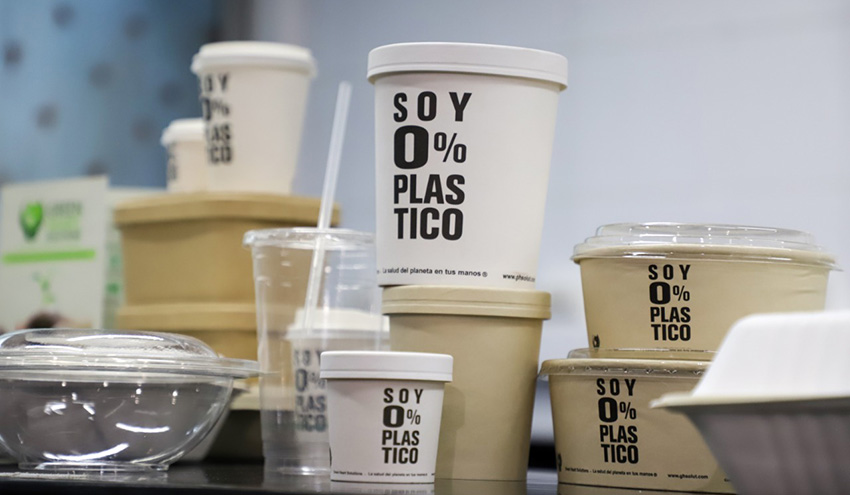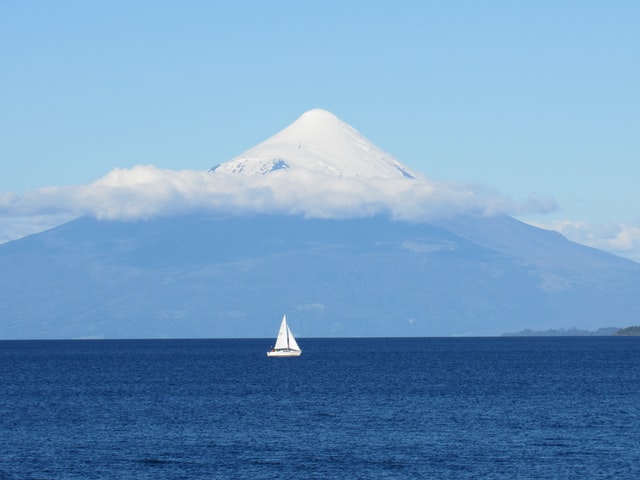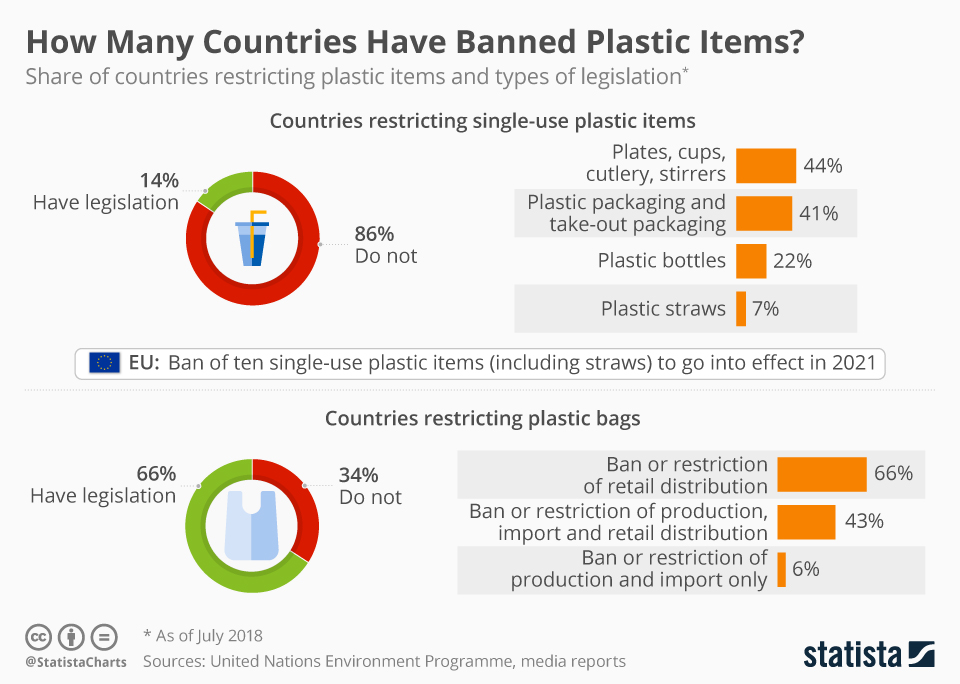
- Sustainable Planet -
- 4mins -
- 342 views
Chilean Law to crack down on Single-Use Plastics now in place
A new law which prohibits the delivery of straws, stirrers and Styrofoam containers among other difficult to recycle single-use plastic waste, entered into force on across Chile on Sunday 13 February 2022.
Chilean Law regulating single-use plastics now in effect
An environmental milestone was met on 13 February, 2022 when the law regulating single-use plastics entered into force in its first stage, prohibiting fast food establishments – such as restaurants, cafes with self-serve soda fountains, among others – from offering their customers straws, stirrers, chopsticks and plastic cutlery. The new law will also force supermarkets to have returnable packaging options for beverages.

Chile’s Law regulating single-use plastics now in force
From the same date, says a release from the Ministry for the Environment, the use of single-use polystyrene/styrofoam products, such as containers, will be prohibited. Also, supermarkets will have the obligation to have an offer of drinks in returnable format, as well as the duty to receive this type of bottle from customers.
"The implementation of this law, one of the most ambitious in the world to combat pollution from the indiscriminate use of plastics, is a milestone in the care and protection of Chile’s environment. This legislation implies a profound change of habit, both for locals that sell food and citizens, but that will allow us to reduce the more than 23,000 tons of single-use plastic that are generated annually in Chile," said the Minister (s) of the Environment, Marcelo Fernández.
For its part, Environment Secretary Rodrigo Lagos added that "this regulation seeks to reduce the generation of plastic waste, through the prohibition on the delivery of single-use products, the promotion of reuse, certification of single-use plastics and regulation of plastic bottles."
The law contemplates sanctions ranging from one to twenty Monthly Tax Units (UTM) depending on the type of infringement and the product marketed, which will be applied by the Local Police Court of the commune where the establishment is located. It will be up to the municipalities to monitor compliance with the law, while anyone will be able to report if this does not happen.
Source: mma.gob.cl

New stages of law enforcement
The representative of the Environment portfolio in the O’Higgins region, explained that the law considered a gradual application of new requirements. Thus, in August 2023, the obligation to offer and receive returnable bottles extends to other shops such as warehouses or convenience stores. "While in August 2024, no food place will be able to use products that are not reusable, that is, not only is the use of any plastic product prohibited inside the premises, but also of any other material that is not reusable," Seremi explained.
In the case of delivery services, from 2024 they will only be able to use certified plastic utensils and containers, that is, they are made from renewable resources, and that they can be composted. The above will also apply if it is the same consumer who withdraws the food from the food store.
In addition, the regional authority detailed that "all disposable plastic bottles of beverages that are marketed in Chile will have to be made with a percentage of plastic collected and recycled in Chile, promoting recycling and generating a profound change in our country, in the fight to face plastic pollution."
Source: mma.gob.cl

certified plastics will required to be easily distinguishable from other plastics
According to US-based non-profit Plastic Oceans, an ambitious element of the law is the introduction of a certification for compostable plastics, ensuring that only truly bio-based compostable plastics will replace single-use petroleum-based plastics.
Other innovative components to the law are that education and accurate information must be delivered to the consumer. This means that the beverage brands must inform consumers about the importance of the returnability of the bottle, while the Ministry of Environment will promote and implement environmental education programs. In addition, certified plastics will required to be easily distinguishable from other plastics (through eco-labelling).
Finally, the project establishes the incorporation of recycled material in disposable bottles and requires points of sale to offer returnable alternatives to single-use bottles.
Any citizen may report infractions, giving a joint responsibility on the good implementation and enforcement of this project to the citizens and Municipalities. The active participation of citizens in caring for the environment ranges from choosing alternative to petroleum-based products up to reporting infractions.
Source; PlasticOceans.org

